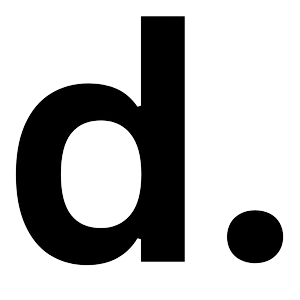The #1 career skill you’re probably ignoring

There’s one skill that separates forgettable professionals from the ones who get remembered, referred, and recruited.
It’s not technical mastery.
It’s not networking.
It’s storytelling.
When you know how to tell compelling stories about what you’ve accomplished, you immediately stand out. People remember you. They understand your value. And they want to work with you.
Most people list their skills and experiences in a long, dry list that gets forgotten as soon as it’s read.
But an achievement story brings your work history, interview, or conversation to life. It creates connection. It communicates your skills in context. And it builds trust faster than a bullet-point ever could.
Here are 5 achievement story frameworks that will save you dozens of painful hours trying to figure it out yourself:
1. The Career Clarity Achievement Framework
This completely changed the way I thought about pitching clients, sales calls, and interviews.
Start with one clear win.
If you’re overwhelmed trying to explain your experience, start here.
- Choose a specific, work-related achievement that you played a role in
- Write a single sentence describing what you accomplished
- Keep it simple. Just focus on the impact
Here's an example:
In Q3, I led a cross-functional project that reduced customer onboarding time by 30%—freeing up our success team for more strategic work.
This works because it gives your audience a measurable result right away. It tells them what you did and why it mattered.
2. The Story-Driven Action Map
Now, walk your reader or listener through the story step by step. Don’t just say what happened. Show how you made it happen.
Context is everything.
- Start with the problem or challenge
- Outline the specific actions you took to solve it, in order
- End with the measurable result
Use this like a roadmap. Think of it as the beginning, middle, and end of your mini-career narrative.
You can also include roadblocks you overcame to add depth and show resilience.
3. The Skills Spotlight Framework
This is where the magic happens.
Go back and read your story. What skills did you use to make that achievement happen? Highlight every moment where you showed:
- Leadership
- Problem-solving
- Communication
- Strategic thinking
- Initiative
Then, write down 3-5 core skills you demonstrated. These become keywords you can use in your resume, portfolio, or networking conversations.
This exercise reveals your real strengths and shows people how you work.
4. The Memorable Summary Method
Struggling with rambling, forgettable answers in interviews or networking chats?
No one remembers a rambling answer. Here’s how to make your story stick in someone’s mind: tighten it up.
- Boil it down to a 3-4 sentence summary
- Make sure it covers the situation, your action, the result, and the key skills
- Practice saying it out loud until it flows naturally
This is your go-to version for interviews, quick intros, and networking. It helps you sound polished without feeling rehearsed.
5. The Reflection Loop
This is where confidence and clarity come from.
Most people skip this part, but it’s what separates strong professionals from great ones. Ask yourself:
- What did I learn from this achievement?
- What skills do I want to use more often?
- What other stories could I tell?
This is where you unlock new career paths, make smarter decisions, and pitch yourself more powerfully. Reflection turns experience into insight and insight into momentum.
Final thought
The world’s most valuable skill is storytelling.
Want to turn your accomplishments into unforgettable stories that open doors?
Start with one. Use these five frameworks. And practice until it becomes second nature.
Dan's Dispatch Newsletter
Join the newsletter to receive the latest updates in your inbox.




